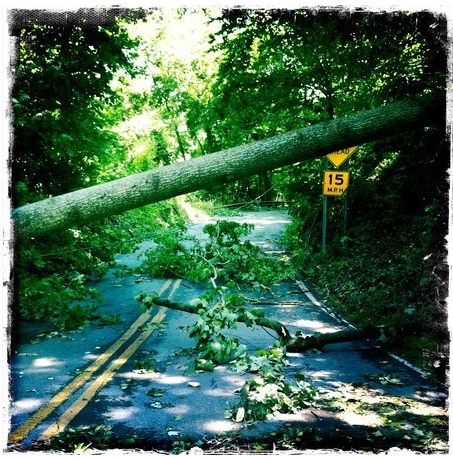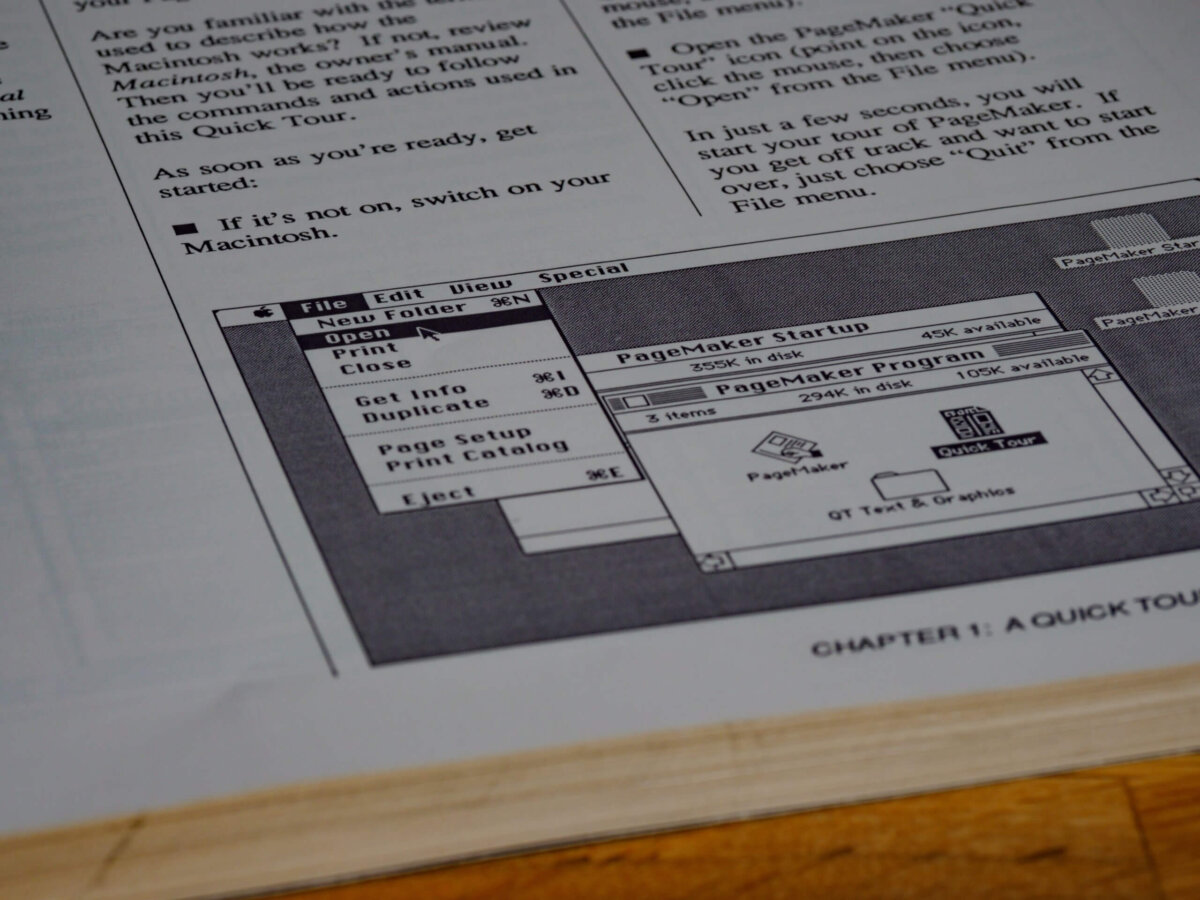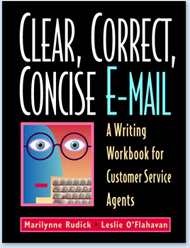After the destructive derecho storms our region experienced last week, the streets were a mess of downed branches, wrenched limbs, uprooted trunks, and scattered leaves. And residents were eager to jump into clean up activities. But lots of us were wondering what to do with all the tree junk that had fallen. We didn’t have to wait long for an answer from Alert Montgomery, our county government‘s e-mail and text system for sharing urgent messages with residents. 
Plain Language, Please!
The person who wrote this e-mail needs to brush up on plain language skills, especially because readers were sweating in the dark and reading it on smartphones with dwindling batteries. Here’s the e-mail in its entirety, followed by my comments and rewrite.
From: Alert Montgomery
To: Alert Montgomery Users
Subject: Debris Guidelines (Email only)
Once power has been restored throughout the County and operations are back to normal, the Montgomery County Department of Transportation (MCDOT) will provide special storm debris collection. The date the collections will begin and additional details will be provided as soon as the information is available. Residents will be asked to place storm debris in the public right-of-way, ensuring that sidewalks, driveways and roads are not blocked.
Residents may also continue to use County-provided trash and yard trim curbside collection or drop off disposables at the Transfer Station.
Curbside Collection of Yard Trimmings:
Bag, bundle, or containerize branches, limbs and yard trim and place at curb on trash day. Bundles should not exceed 30 inches in diameter and branches should be no larger than four feet in length and four inches in diameter. Total weight must be less than 45 pounds for containers, bags and bundles.
For more information, visit: http://www6.montgomerycountymd.gov/apps/News/press/PR_details.asp?PrID=8652
.
Why This E-Mail is Written in Un-Plain Language
- The subject line is inexplicable. I guess the folks who wrote this e-mail wanted this content sent by e-mail only, not by text. And can debris really follow guidelines? In my experience, debris doesn’t give a darn about guidelines.
- No personal pronouns. Bureaucrats write to “residents.” Real people write to “you.”
- Unnecessarily technical or made-up words. Can you picture a homeowner whose power has been out for 72 hours measuring the diameter of a branch to see whether it’s five inches, not four? And as for “containerize,” it’s a treasure, but it’s not the word this writer is looking for. I looked it up on Wiktionary, and it does not mean “to stuff yard debris into a container.”
.
My Plain Language Rewrite
Here’s my easy-to-read version of the Alert Montgomery e-mail. My rewrite goals: to help the county get the yard debris packed correctly and to help stressed out residents clean the junk out of their yards. Oh – and to build rapport between the county government and residents. Rapport smooths communication and customer service.
From: Alert Montgomery
To: Alert Montgomery Users
Subject: How to Package Yard Debris for County Pick-Up
Once power has been restored throughout the County and operations are back to normal, the Montgomery County Department of Transportation (MCDOT) will provide special storm debris collection. We’ll provide you with collection dates and other details as soon as the information is available. We expect to begin picking up storm debris on July 9 or soon after.
How to Package Yard Debris
You may bag, bundle, or pack your branches, limbs, and yard trim in containers. Your bundles shouldn’t be larger than 30 inches in diameter. Individual branches shouldn’t be longer than four feet or bigger than four inches around. Each bag, bundle, or container must weigh less than 45 pounds.
How We Will Collect Yard Debris
Place your items at the curb on your trash day, but please be sure to leave sidewalks, driveways, and roads clear. You may also dispose of storm debris on a regularly scheduled curbside collection date or drop off your debris at the Transfer Station.
For more information, read the press release “County Announces Crews Will Collect Storm Debris After Recovery“
There now. I feel better. I may have spent four days without electricity, AC, or cell phone service. My yard may be littered with debris. My air conditioning may be permanently damaged by power surges at the start of the storm, but at least that Alert Montgomery e-mail is readable. I do feel better. Really, I do.
Tags: Customer service e-mail, Plain language






First, I am so glad you feel better. You DESERVE to feel better. All of you on the east coast and middle America have been through more than enough, already!!!
As for “containerize,” as much as I wanted to agree with you, just on general principle and in solidarity with you as you protest against your current plight, I have to admit I knew what it meant right away. I recognized right away, too, that this is another noun that’s going the way of all good nouns – it was becoming verbed. To give the benefit of the doubt to the Montgomery writer, I decided to look up “containerize” in one more dictionary. Look at the second definition Merriam Webster gives gives “containerize” here: http://www.merriam-webster.com/dictionary/containerize
On a better day, I know you would at least partly agree with me! Today, you can pick my writing apart, too!!!! Go for it!!!!! And recover soon!!
I love your writing tidbits. Don’t stop! Ever!!!! It is up to so few of us to guard our beautiful language. Some change is good, but we have to help the changers be gentle. And logical. And respectful.
Hi, Sue – Thanks for your comment and your solidarity. I love your phrasing: “…we have to help the changers be gentle.” Sometimes I have to be a little gentler, too. And who can argue with Merriam Webster??
Loved your rewrite. I got those same county alerts and found them lengthy and cumbersome. Also a bit unclear. But I guess I was so used to seeing that kind of language, I just drudged through reading it and continued to wait for Pepco to give me my lifeline back. Or maybe my brain was just numb from overheating.
Hi Leslie,
First of all, I hope things have gotten better since the storm. Interestingly enough, my wife and kids were visiting family in Maryland and were there during the storm. They described the intensity of it and the heat that ensued.
I think your suggested corrections are spot on. When I first started reading the original email, what hit me the most was the use of the passive form. This precludes clarity, i.e. who does what.
The passive is often a no-go if one wants people to understand instructions and act upon them properly.
I’m glad you pointed this out and are ok.
Did you (respectfully) forward your rewrite to the sender of the original message? Some people may still not be aware of plain language writing or how to do it. Love the post!
Hi, Clare – Thanks for your comments. It’s sad when we get used to “lengthy and cumbersome” communications from our county government, which should be writing in a way that helps us get stuff done! Sheesh. As they say at CenterforPlainLanguage.gov, “Plain language is a civil right.”
Hi, Badou –
Thanks for your good wishes. Yes, all systems are back in place, and we are using energy as usual to cool, connect, talk, and feel comfortable.I agree that Alert Montgomery’s original e-mail overuses passive voice. This sentence is a passive classic: “The date the collections will begin and additional details will be provided as soon as the information is available.” And sorry your family had to endure our swampy storm. The weather is calm and pretty today!
Hi, Colleen – Thanks for your comment. Hmmm… good suggestion. I’ll figure out a diplomatic way to forward my rewrite to Alert Montgomery. I hope they find this action constructive. If I make them angry, I’m afraid they are going to “ignore” my yard debris!
I liked this post! Another great suggestion would be to include a sentence about what to do with debris that is too large to fall within those pick-up guidelines.
Hi, Karen – Thanks for your comment and suggestion. I agree that the county should have told residents what to do with their too-big branches. But I fear they might have been told to “whittle-ize” them, or something to that effect!